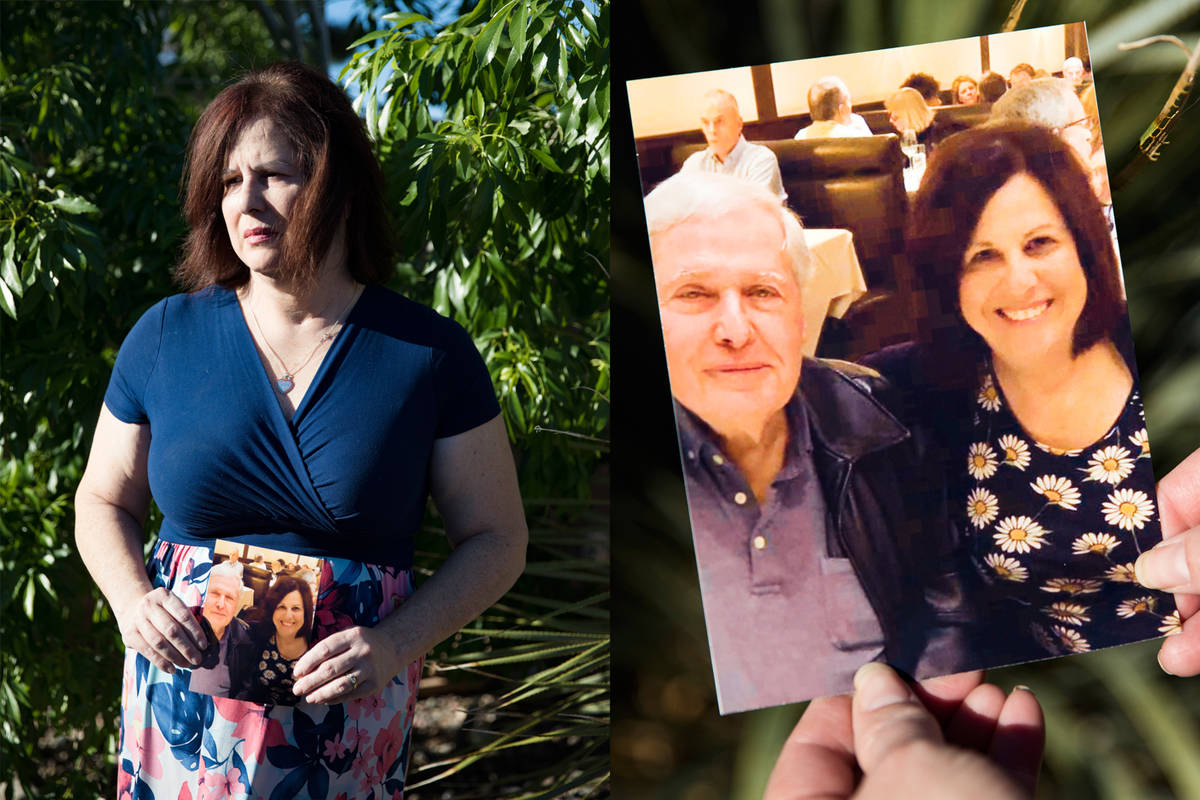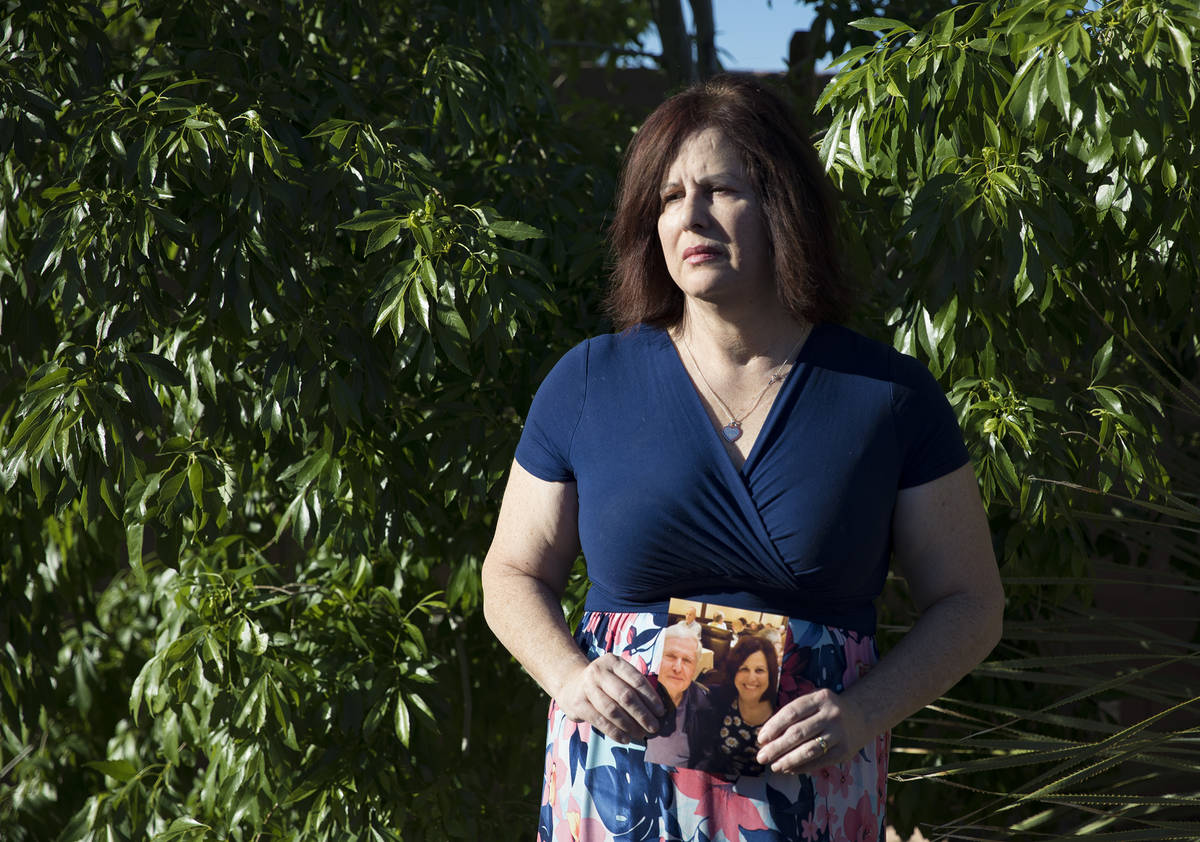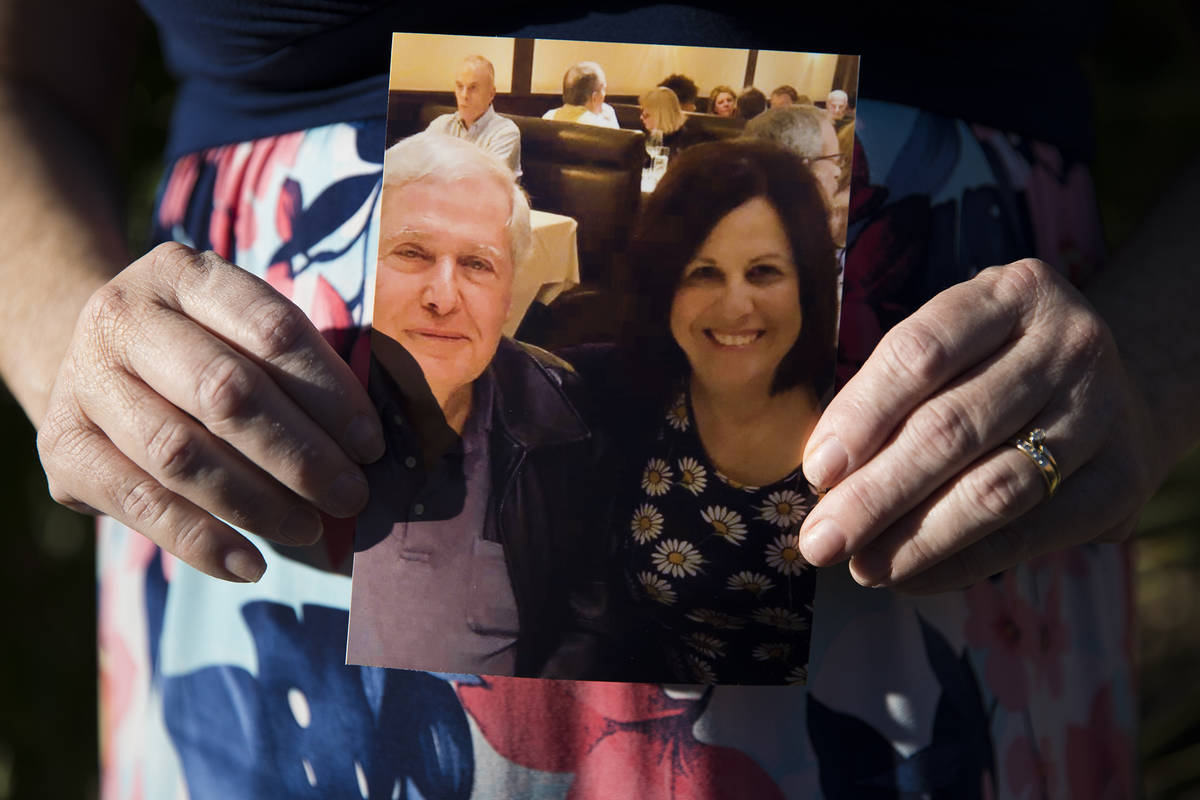Daughter of COVID victim: Hospital ignored my concerns
The Review-Journal wants to tell the stories of those who have died due to the coronavirus. Help us by submitting names of friends or family to covidstories@reviewjournal.com.
Abbie Purney knew her father was about to die.
In the intensive care unit at Southern Hills Hospital and Medical Center, she tried to absorb every last detail.
He hadn’t been shaved, she noticed. His lips were cracked. She held his unresponsive hand.
They shared 15 minutes before Gerry Mandel’s heart stopped beating March 28. Purney remembers the time — 12:59 p.m. He was 81.
A retired pharmacist, Mandel had been hospitalized for about 10 days with the coronavirus before he was removed from life support. His wife, Lillian Mandel, also was sick with the virus, though Purney said her stepmother has since recovered.
“To this day, we don’t know how they were exposed,” Purney said.
But even in the care of doctors, she said, it took four days for her father to get tested, and it took another five days before relatives learned the results.
“My whole day would be spent calling, and I felt like I was annoying them,” said Purney, a doctor of nursing practice and a nursing instructor with Arizona College’s Las Vegas program. “But I’m like, this is my father. I felt so helpless.”
She is grateful she was by his side when he died. She understands that’s a rare occurrence amid the pandemic.
But just because families can’t physically be with their loved ones right now shouldn’t mean their concerns can be ignored, too, no matter how busy staffers get, she said.
“The communication is such a huge travesty in this situation,” Purney said. “Yeah, we’re connected telephonically or through the computer, but when you’re not there to advocate for your loved one, that’s hard. I don’t know if the outcome would have been different if I had been there or could have been there.”
Downward spiral
Gerry Mandel arrived at Southern Hills on March 17, Purney said. He had been sick for a few days, but her stepmother, who also was sick, ultimately called for an ambulance because Mandel was “not right,” she told Purney.
Over a FaceTime call, Purney — who has a background in critical care — noticed her father seemed to have trouble breathing. She spoke with a nurse, who increased his oxygen level.
Later that day, a nurse reported that Mandel’s CT scan showed pneumonia, but it also showed hazy spots that the nurse said seemed suspicious amid the pandemic, Purney said.
But even as his fevers continued, and even as his kidneys began to fail, and even as Purney repeatedly spoke with hospital staff, asking about the scan, she said it took days for him to get a coronavirus test.
“There was no urgency, nothing,” she said. “They just gave him antibiotics.”
Southern Hills in a statement declined to comment on Mandel’s case, citing patient privacy. The hospital instead pointed to a national shortage of COVID-19 tests that is causing testing delays, including at Southern Hills.
“It is taking days, if not longer, to get results back,” the statement read. “As a community-based hospital our number one priority are the patients we serve, so it’s been frustrating not having results to share with our families who are desperate for answers.”
Southern Hills is exploring additional testing options, the statement said, “but unfortunately due to the magnitude of the requests there are still delays.”
In the meantime, Mandel had to be restrained, Purney was told. He was resisting aerosol therapy — a mist meant to aid breathing problems that she guesses made him uncomfortable.
The day Purney learned her father was positive was the same day he was transferred to the ICU. He never recovered.
“The last thing I said to my dad was I was going to fight,” she said. “I was going to tell his story. Not that I felt like he was mistreated, per se. Looking back, I think there were a lot of unknowns. But they wouldn’t listen.”
Involving families
As long as patients give consent, Dr. Badrunnisa Hanif said, it’s important that doctors and nurses regularly update families, especially at a time when they cannot be with their loved ones.
An assistant professor with the UNLV School of Medicine’s department of internal medicine, Hanif said she recommends her team make a point to call relatives daily during patient rounds.
“I think when patient family members call the hospital, the call goes through to the hospital operator, then to the front desk, then to the nursing unit, then to a nurse, and it can get lost somewhere,” she said. “And it’s very hard. I feel their pain.”
On the other side of it, Hanif noted that doctors and nurses are dealing with much more personal protective equipment than usual.
“It takes longer, with the same number of patients, to do care with all the PPE,” he said. “And when you are in PPE, you have gloves on, so you cannot take the phone.”
That’s why she said staff members need to be proactive in making sure families are updated, especially if patients do not speak English.
In those cases, Hanif said, relatives normally serve as informal translators. But without them in the room, and without the ability to have hired translators in the room, doctors and nurses are calling off-site translators, who are then working to relay information between patients and staff, which can also cause delays.
“We are making efforts to make sure that families are involved and families are updated on a daily basis,” she said.
Southern Hills again declined to comment on Mandel’s case, but in the same statement extended “our deepest sympathies to every family affected by this.”
“We know our condolences can’t take away their heartbreak, but we hope they know this is a loss — we as a hospital — share with them,” the statement read.
Purney, whose mother-in-law died naturally days before her father was admitted to the hospital, said she did not have the emotional capacity to accept what was happening at the time, calling it “the worst 10 days of my life.”
“But now it’s hitting me,” she said, more than a month after his death. “It’s hard.”
Purney described her father as a kind, reserved man who, as a pharmacist for more than 50 years, would above all want to see a vaccine — a way to end this. That gives her hope.
“What better thing would he want than knowing we found a way to help people?” she said.
Contact Rachel Crosby at rcrosby@reviewjournal.com or 702-477-3801. Follow @rachelacrosby on Twitter.





















